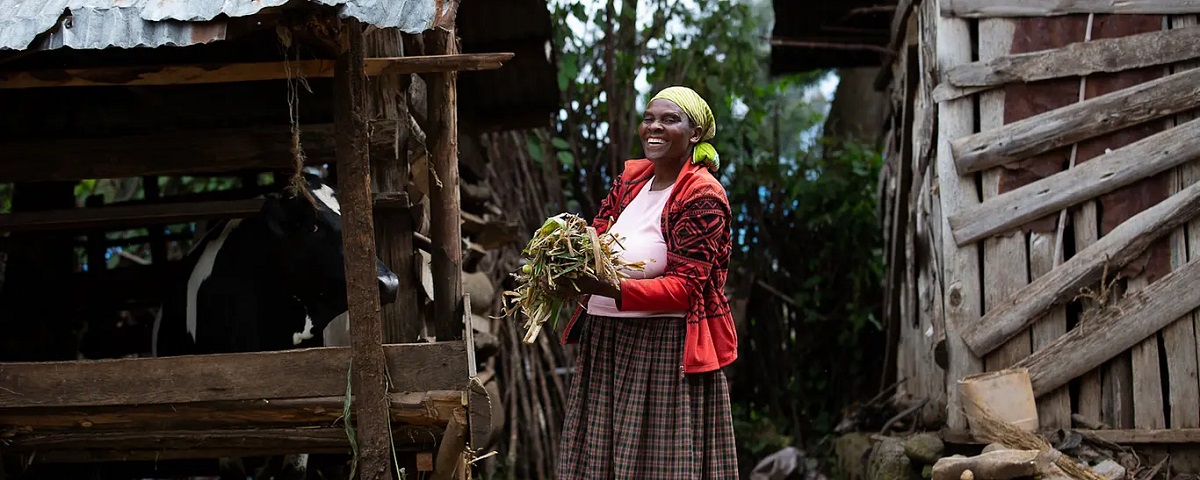
The objective is to support Rwanda’s progress toward self-reliance through increased export of high-value agricultural products
The approach is to work with and through the Government of Rwanda, civil society, and the private sector to facilitate $300 million in new investment in Rwanda’s agriculture sector
The impact expected is to reach inclusive and sustainable economic growth that creates market opportunities, jobs, and increased income that support’s Rwanda’s vision to become a high-income country
One of Africa’s fastest-growing economies, Rwanda has made significant progress in improving its agriculture sector and becoming more competitive in the global market. However, although more than two-thirds of Rwandans work in agriculture, the sector still only accounts for one-third of Rwanda’s Gross Domestic Product. And, at five percent, growth in agricultural export markets is slow compared to other industries.
The opportunity is there to achieve explosive growth in high-value agricultural exports, and the Government of Rwanda has identified agriculture as part of its national transformation agenda. Eager to sustain economic growth and achieve high-income status, the country has the potential to capitalize on the favorable growing conditions, low labor costs, and increased demand to transition the country’s economy away from subsistence farming to high-value exports.
Funded through Feed the Future, the U.S. Government’s global hunger and food security initiative, Feed the Future Rwanda Kungahara Wagura Amasoko (“Prosper as You Expand Markets”) is a five-year USAID effort that will boost economic growth by increasing the export of high-value agricultural exports such as coffee, tea, horticulture, and animal-sourced commodities.
The project is working with and through the Government of Rwanda and the local private sector in 13 districts to foster an inclusive and resilient enabling environment in which agricultural businesses can thrive.
Coming together for Rwandan businesses
Kungahara Wagura Amasoko is taking a market systems-led approach to align incentives among market actors to promote investment in the country’s agriculture sector. Alongside the Government of Rwanda, Kungahara Wagura Amasoko will facilitate inclusive and resilience-focused policy reforms that promote agricultural export growth. Through demand-driven technical assistance and investment advisors embedded within the National Agricultural Export Development Board (NAEB) and Rwanda Development Board (RDB), it will support the country’s public and private sectors to attract, mobilize, and direct financial resources and investments toward increased agriculture and food exports.
Kungahara Wagura Amasoko will also work with agri-export businesses to boost their ability to advocate for their own interests, with the hope that the government’s evidence-based reforms will be crafted with the participation of a more robust and expressive private sector. Building on previous USAID-funded efforts implemented by RTI, the project will foster a culture of public-private engagement, assisting the Government of Rwanda to regularly conduct results-oriented consultation with the private sector and building the capacity of private sector associations to advocate for policy reforms and participate in agriculture-related public-private dialogues.
The project will also facilitate increased high-value agricultural exports by promoting investment in local production of environmentally friendly packaging, for example, and exploring possibilities for simplifying export procedures. It will build the readiness of Rwandan firms to export high-value agricultural goods and will help expand innovative financing models and new technologies along their value chains.
Increased private sector investment in Rwanda’s agricultural sector will increase export competitiveness and create market opportunities—not to mention an estimated 1,000 jobs. The project expects to increase agricultural commodity exports nationally and in so doing, raise incomes for 127,000 households by upwards of 50 percent.
The promise of inclusive economic growth for Rwanda
Rwanda’s agriculture sector is ripe for investment and growth—but not at the expense of its most vulnerable people. Women, young people, and persons living with disabilities who are involved in producing and exporting high-value agricultural exports face enormous challenges that hinder their effective participation.
Rwandan women face constraints due to their limited participation in decision-making processes, low levels of education and training, and the persistent gendered stereotypes that limit their access to well-paid jobs along high-value agricultural and export value chains. Young people have limited financing opportunities that make it hard for them to access land for agriculture. And people with disabilities suffer from a lack of assistive aid and equipment, mobility constraints that can result in additional production costs, and a lack of friendly infrastructure in their environments, not to mention discrimination and stigma.
Kungahara Wagura Amasoko will include a robust gender and social inclusion strategy to address these barriers and make sure women, youth, and persons with disabilities are able to take full advantage of opportunities in the agricultural exports sub-sector.
Engaging these groups will be an important part of the project’s approach to achieving inclusive economic transformation in Rwanda.
Rwanda’s gross domestic product (GDP) has tripled since 1994, averaging 7.5% annual growth and contributing to a threefold increase in per capita income (National Institute of Statistics of Rwanda, GDP Figures). Kungahara Wagura Amasoko will add to this success by further increasing Rwandan export competitiveness, boosting sales of high-value crops, and expanding jobs along value chain to continue increasing household-level income for all Rwandans.
Subscribe to view notification of our daily news
RwandaPodium © All Rights Reserved. Powered by thesublime.rw